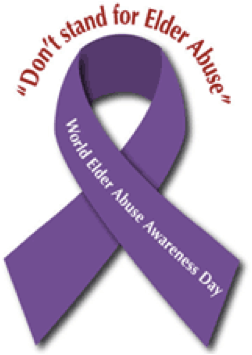Report suspected mistreatment to your local adult protective services agency or law enforcement. Although a situation may have already been investigated, if you believe circumstances are getting worse, continue to speak out.

Keep in contact – Talk with your older friends, neighbors, and relatives. Maintaining communication will help decrease isolation, a risk factor for mistreatment. It will also give them a chance to talk about any problems they may be experiencing.
Be aware of the possibility of abuse – Look around and take note of what may be happening with your older neighbors and acquaintances. Do they seem lately to be withdrawn, nervous, fearful, sad, or anxious, especially around certain people, when they have not seemed so in the past?
Contact your local Area Agency on Aging office to identify local programs and sources of support, such as Meals on Wheels. These programs help elders to maintain health, well‐being, and independence – a good defense against abuse.
Volunteer – There are many local opportunities to become involved in programs that provide assistance and support for seniors.
World Elder Abuse Awareness Day – Elder abuse is a global issue. Contact your local aging services organizations to find out how your community will observe World Day. Help to raise awareness by talking about the issue.
Learn more about the issue ‐ Visit the National Center on Elder Abuse website at https://acl.gov/programs/elder-justice/national-center-elder-abuse.
